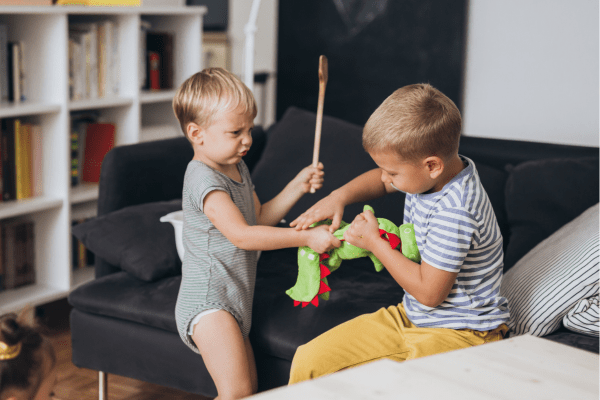
When my daughter was about two or three years old, another toddler bit her.
The mom of the biter ran in and said to her child, “You do not bite! Do you want me to bite you back? Look how hurt your friend is! You need to say you’re sorry and give her a hug.”
I remember the look of fear on my young toddler’s face. It said,“Don’t let her near me! She just BIT me!” But, thus began the first step of the conditioning that is “SORRY.”
Adult Apologies
It got me thinking — when someone has wronged me, does sorry make me feel better?
Sometimes.
Someone bumps me accidentally as we’re walking out of a store and they say, “Oh excuse me, I’m sorry.” This makes me know they did not intentionally bump me, and I feel a little better.
Sometimes, in a spousal argument, a sorry goes a long way in someone admitting they were (at least partly) the cause for whatever occurred.
Once someone rear-ended me, and the person got out of the car saying, “I am so sorry,” right away. I knew this wasn’t going to be some kind of fight about who was at fault.
Accidents happen, and the sorry felt good.
But our kids are learning. They are not adults.
They are not always able to be empathetic. And you don’t need to immediately respond to their lack of affect or remorse. Kids are a bundle of wants and needs. Many children are removed from their feelings.
Tying apologies and closeness ( i.e. “Give them a hug.”) after being violent or hurtful sets dangerous link between violence and closeness.
There are physical things that kids do that are not intentionally violent, so why tie it to an intentional apology when they don’t yet understand what they did wrong? Young kids often lose their cool, hit, grab things away, destroy something another kid made, knock someone over, throw something, and hit someone.
In the toddler years, it can be biting.
I don’t believe in forcing the offended child have to get close and listen and immediately abandon their feelings about the bad thing that happened to them.
“Well, I can’t just let a kid get away with hitting, grabbing things, wrecking someone’s stuff, lying, etc! The real world has consequences!”
That’s fine. Give the consequence that logically fits the crime. Have them stop playing the game. Take away the toy they threw. Make them leave the park.
That consequence does not have to include saying they’re sorry.
My son’s favorite thing to do when he was young was to launch anything into the air with no thought of where it might land. This game went on well past an age where it was anything but embarrassing.
At a basketball practice in the elementary years, he was launching basketballs from the half court line towards the hoop while standing backwards. Did he think about all the kiddos standing under the basket who were properly shooting around, getting their own rebounds?
Of course not.
So one of his air balls hit someone in the face and gave them a bloody nose. I gave all my attention and energy to the kid who was hurt in that moment, and took my son’s ball away. This had been something my son had been told to stop numerous times.
A Delayed Apology
So when we got home, I had my son write an apology note, including putting some of his Halloween candy in the envelope. He gave the note to the kid’s dad at the next practice. There was no reason for that child who had been hurt to stand close and abandon his feelings about what my son did in that moment.
The letter maybe taught my son a lesson, but the harmed child certainly didn’t need to accept the, “Sorry.”
Think on it a bit as a parent. Maybe a delayed sorry, after a discussion with your child, is something you want your child to do (if you can tell they do indeed feel bad for what happened). Or, if you don’t think your child is genuinely sorry, utilize another consequence. The consequence then would’ve been me watching him like a hawk through warmups to make sure no other kid was hurt.
Are sorry’s good when they mean it? Yes! But children may need more discussion to understand their feelings and what an apology is. Mandating immediate “sorrys,” especially with really young children, doesn’t usually help them understand their own feelings or those of the child they hurt or upset.
I wish I could go back and stop the “sorry” my little toddler received back then and used it as a lesson in feelings. Telling kids to say “I’m sorry” is such an immediate reaction, but try to take a step back next time and think about a different approach.
















